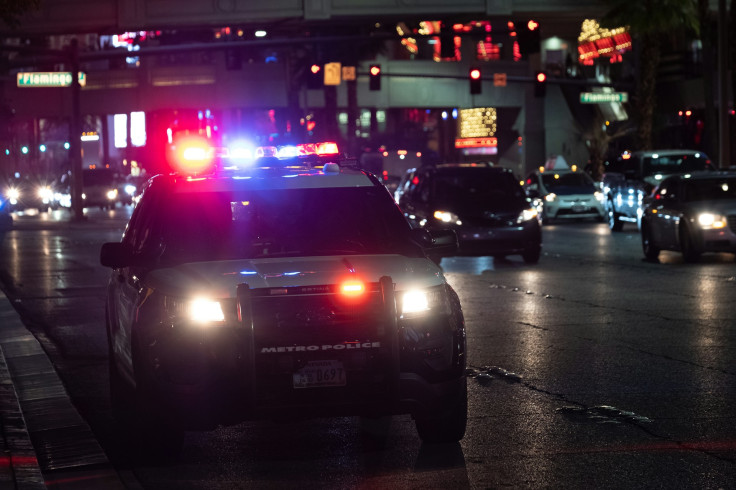Shocking Failures Exposed: Teen Killer Axel Rudakubana Freed From Mental-Health Care Days Before Southport Massacre
Officials admit multiple missed warnings as the inquiry exposes how a 17-year-old with violent obsessions slipped through the cracks of Britain's mental health and safeguarding systems.

The Southport inquiry has exposed chilling new details about how 17-year-old Axel Rudakubana, who butchered three young girls at a Taylor Swift-themed holiday club, was discharged from mental-health services less than a week before his deadly rampage.
The revelations have provoked fury across Britain, with campaigners and grieving families accusing officials of catastrophic failures that allowed one of the nation's most harrowing child murders in recent memory to unfold in plain sight.
Warnings Ignored
Chaired by retired judge Sir Adrian Fulford, the inquiry is laying bare how Rudakubana, a troubled teenager long obsessed with knives and violence, slipped through every layer of Britain's mental-health, education and social-care safety net.
Records show he had been treated by Child and Adolescent Mental Health Services (CAMHS) since February 2021 after being diagnosed as autistic and suffering from anxiety. Yet despite years of warnings from teachers, doctors and social workers, he was never labelled high-risk.
By 2022 he had stopped cooperating entirely. Teachers at Acorns Pupil Referral Unit in Ormskirk raised fresh concerns after he made vile remarks about the Holocaust and Jewish people.
But because he had already been referred twice to the Government's Prevent counter-radicalisation programme, officials decided no further action was needed.
Lancashire County Council has since admitted a string of 'communication failures' between agencies. One of the most shocking came in March 2022, when Rudakubana was found on a bus carrying a knife after telling police he wanted to kill someone. His family support worker was never informed. Council officials now concede it was a 'missed opportunity' to recognise the danger he posed.
A Troubled Home and a Failing System
The inquiry also revealed disturbing details about life inside the Rudakubana home. Social workers described Axel as volatile and aggressive, and accused his parents of physical and emotional abuse. During one visit he reportedly poured milk over his parents' bed in rage.
Psychiatrists told the panel they were 'perturbed' by the behaviour of his father, Alphonse, who was dismissive and unco-operative throughout consultations.
Perhaps most alarming, Alphonse admitted he suspected his son was carrying a knife when the boy tried to take a taxi to his former school a week before the killings. Instead of alerting police, he begged the driver not to take him. That failure to report is now a key focus of the inquiry's probe into parental responsibility and the wider collapse in communication between agencies.
Axel's older brother Dion, a university student at Warwick, submitted a written statement describing his sibling's decline. He said Axel became 'progressively more isolated' after being expelled from school at 13 and pleaded for the inquiry to uncover 'whether more could have been done' to stop the tragedy.
A Digital Obsession With Violence
Detectives later uncovered hundreds of files on Rudakubana's devices, filled with gruesome videos, extremist imagery and documents fixated on war and conflict.
Detective Chief Inspector Jason Pye described the teenager's fascination as 'intense and abnormal', revealing he frequently bought knives and archery equipment online.
Although counter-terrorism officers examined his online trail, they concluded Rudakubana was not driven by politics or religion but by a 'pure obsession with violence itself'. Investigators said his collection of violent and extremist material was 'not consistent with someone who had stumbled upon it by accident'.
A Nation Demands Answers
The Southport killings claimed the lives of nine-year-old Alice Aguiar, six-year-old Bebe King and seven-year-old Elsie Stancombe. Their devastated parents delivered heartbreaking statements at the inquiry, describing lives 'shattered beyond repair' and calling for sweeping reform.
'We lost everything that day, and I need to understand how this happened,' said Elsie's mother Jenni Stancombe. 'This was not just a knife crime. It was a chain of failures.'
As hearings continue at Liverpool Town Hall, the Southport inquiry has become a mirror reflecting deep cracks in Britain's mental-health and safeguarding systems.
Officials, parents and the public are now demanding accountability and answers to the question echoing across the nation: how many warnings were enough?
© Copyright IBTimes 2025. All rights reserved.





















